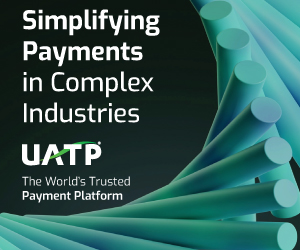Business Travel Executive and The Company Dime on April 18 kicked off a new virtual LinkedIn Audio series. The series is based on the recognition that the pace of change has accelerated and the buyer’s voice is critical – albeit sometimes muffled by industry noise. We dispensed with pretense and talked about navigating the ever-changing landscape of corporate travel supplier models and platforms.
Joining us were Diane Lundeen Smith, senior manager for global air and ground program strategy at Microsoft, and David Weaver, manager of global travel at Bechtel Corporation. Both are longtime participants in IATA’s NDC Travel Manager Advisory Group (TMAG). Here’s an edited excerpt.
Jay Campbell, The Company Dime:What does it mean to have a voice in this industry for you?
David Weaver: Having a voice 20 years ago and having a voice today are very different. Our supplier bases have gone through a great deal of consolidation. This has reduced competition and it’s made the corporate voice even more important today. Twenty years ago, it was more competitive; we were more of the customer back then. Now we are trying to gain some of that back.
We’re beginning to pilot new third-party technologies in order to develop a program to deliver a better product for the travelers and better traveler satisfaction, which is really top of mind for C-levels and senior managers of the company. When we show them what we are doing and how we benchmark with and learn from our peers, there is a much more confident position.
Campbell: How do you look at taking on some experimentation in the travel management program?
Diane Lundeen Smith: If we don’t try new things, we are not going to solve for the problems. There can be a list of blockers that prevent you from doing something, and then you start to chip away and create workarounds and resolutions. We have gaps in programs today because of content challenges. We also have the pressure of different ways to buy things in every part of our lives, and that’s spilling over to the corporate space. Creating new ways to buy is super important. It’s important for the industry to hear the good and the bad when someone tries new things.
Campbell:What are some examples of grappling with changing supplier models and platforms?
Weaver: Four years ago, I began an effort to test pilot NDC. I gathered the supply chain, we spent two months planning and coordinating this effort, and it failed. There wasn’t alignment with all the players. That forced me to go back and learn from it and change the outcome.
Time has passed. We had some changes in our supply chain in the past few years and we have been test-piloting New Distribution Capability content since last October – successfully. We have created a test pilot with United Airlines, FCM as the TMC, Concur as the online booking tool (and they use Travelfusion as their aggregator, so this a non-GDS NDC content test pilot) and we even pulled in our security/duty of care provider, International SOS. We have a ways to go, but the goal of the pilot is not just to issue a transaction out the door; it’s to service that transaction. Issuing a transaction is probably the easy part. Servicing it by the agency, the agent desktop, whether online or offline – we are working towards that goal.
People say they don’t know what NDC will deliver. We won’t know until we kick the tires.
Campbell: Sometimes buyers seem to get caught in the middle of different parties on the supply side as they jockey for competitive advantage. Do you try to stay neutral?
Weaver: It boils down to building trust and transparency. We changed our approach to make sure the suppliers understand our objectives and strategies and give them the opportunity to speak up if there is any apprehension. The trust and transparency builds off that over time and gets stronger. Defending the status quo is becoming much harder than adopting change.
Campbell: We’ve heard more talk over the last few months about travel programs taking more control in the face of change. That might be through insourcing or the CTD program or taking on a tech contract directly. Do you see these kinds of moves as components of asserting your voice?
Lundeen Smith: I do. As a travel manager you have to understand your leadership, your company’s priorities and travel policies. Do you have the support internally to make the changes you want to make? We know there are gaps in programs today. We simply won’t resolve those by doing the same things the same way they have been done.
Weaver: Change is driven by feedback from travelers. “What can you offer through the program that I can’t get on my own?” If you don’t have an answer to that question, you have a value problem. It’s not just about leaning on duty of care, which is very important. Take charge of your program and begin to build the components that deliver value the travelers want. If it’s outside the program, bring that attribute in. That may be a third-party technology. We became a CTD two years ago during the pandemic. My higher-ups are saying, “We are taking control of our own future, and that’s really good.”
Lundeen Smith: When you are listening to the feedback from your travelers, it is a much more forgiving situation. You are not separate from them. You are not just managing a policy. They are people. They are valuable assets for your company.
Weaver: Back to that word trust – now it’s the travelers that trust you.
Campbell: We’ve been talking for years about elevating service quality, flexibility and work/life balance, especially in industries where competition for talent is fierce. Do you anticipate a shift back to more of a cost-control mindset if there are economic challenges or the cost of travel remains elevated?
Lundeen Smith: There’s been some movement over the years back and forth, but we never lose sight of the employee experience. Our primary role is to keep our employees safe and that it’s an efficient experience. We have not changed our policy over the last few years. We still empower the employee the make the best choice for them. We’re seeing people be more diligent and careful with their budgets because they want to make those budgets stretch as far as they can. But there hasn’t been an adjustment to our policy, nor would I anticipate one.
We are entering some new territory with the continuous pricing, the dynamic nature of offers and customized bundles, etc., that really haven’t been solved yet. How do we still have some sort of baseline on what the company is saving and the value of those relationships? What will need to change in the reporting to accurately capture how the contracts have been performing?
When it gets to bundles, it will be, “Why did I buy what I bought?” It’s not just an airline ticket. We’re coach class primarily, even internationally, so a customized bundle that would be highly desirable would allow for lounge access, fast-track through security or some other benefit.
Campbell: I’d like to end with a question that we’ll unpack in detail on the next episode in this series: What is the value of managing travel and how has that changed over time?
Weaver: Twenty years ago, the travel program was all about consolidating your spend, having one supplier globally. Then we rolled in online booking tools, got a really low cost of transaction and compared ourselves on our cost per transaction rates and online adoption rates. That all lacked any customer focus and now we’re concerned about traveler well-being, retention of our travelers, and making sure they are rested when they get there and rested when they get home. And sustainability. We haven’t lost anything from 20 years ago. We just keep adding more value.
Lundeen Smith: It’s not so easy in the consumer space to research your own trip. For business travel we are trying to make it efficient and effective. In our case, we definitely want to bring in sustainability, remind someone that if they need to take the trip, there are choices you can make to minimize the impact. We’re working on accessible travel, making sure our tools are compliant but also bringing forward more information for our traveler base.
Visit businesstravelexecutive.com to listen to this complete LinkedIn Audio session and find details about the next BTE Town Hall.










